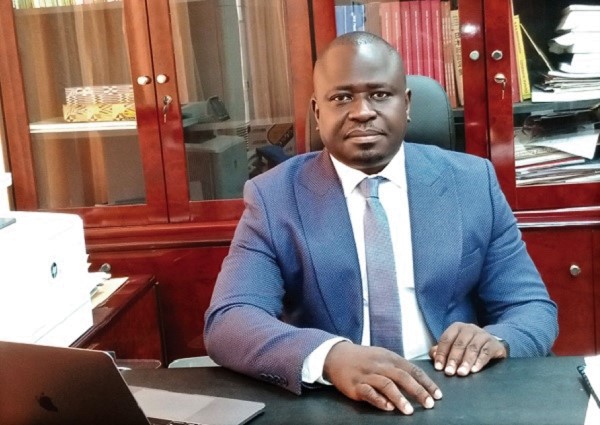Local economies in border communities have experienced the highest dip in economic activity and production due to the outbreak of the Coronavirus.
This is an outcome from a local economic tracker survey by the Ghana Statistical services.
According to the Government Statistician Professor Samuel Kobina Annim, although the entire country has experienced a form of impact, communities along the borders that had the highest rate of food prices and lowest production in economic activities, a situation which brought some hardship to the indigenous people during the period.
The survey conducted in 2,770 localities in the country from May to June this year indicates that many of the respondents do not believe that the local economy can be revived within a year.
Localities in border districts recorded higher price increases in food and non-alcoholic beverages compared to price surges in lockdown and other districts.
Giving out some of the highlights, Professor Kobina Anim disclosed to Journalists that despite the interventions by government and other civil society organizations, many border communities were disadvantaged.
“Covid-19 has undoubtedly had a devastating impact on households, businesses, and the local economy,” he said.
Non-state actors
Meanwhile, the statistical report revealed that non-state actors also contributed significantly to mitigating the impact of the pandemic.
“Support received by the communities from churches and philanthropists is a clear demonstration of how non-state actors have and continue to complement government’s efforts to ensure communities recover better from the pandemic. Partnerships like these are key for the achievement of SDGs,” noted Silke Hollander, Deputy Resident Representative of UNDP in Ghana.
Crime rate
The survey results also revealed that localities witnessed an increase in crime during the country’s Covid-19 lockdown period, with about three out of ten communities (34.1%) experiencing a rise in crime, such as theft and burglary. This was followed by domestic violence (3.7%) and assaults (3.1%) in communities.
Over 30 percent of the localities surveyed have no idea when the local economy might recover from the Covid-19.
The overall response rate for the survey was 96 percent according to the Ghana Statistical Service.
Latest Stories
-
Vice President Bawumia commends Lands Commission for digitalising its operations
31 seconds -
By age 7, I knew everything I wanted to do in life – KOD
3 mins -
10 GWCL customers in Ashanti north celebrated for loyalty, timely water bill payment
3 mins -
Forex debt crisis at ECG: A threat to Ghana’s sovereignty and economic stability
4 mins -
Donewell Life Assurance rebrands to Pinnacle Life Insurance: A new era of excellence
35 mins -
NDC blames ECG’s poor revenue collection for energy sector challenges
37 mins -
MEST Africa, Mastercard Foundation celebrate EdTech Innovations at Demo Day in Accra
42 mins -
AWA reaffirms commitment with FOD Walk during Safety Week
46 mins -
Kuami Eugene hopeful he’ll be first Lynx artiste to survive after leaving the label
57 mins -
Akufo-Addo seeks to use Bawumia to complete Akyem agenda – Asiedu Nketia alleges
60 mins -
National Cathedral: CHRAJ recommends investigation, contract cancellation, possible prosecution
1 hour -
Dr James Orleans-Lindsay wins Man of the Year at 9th EMY Africa Awards
1 hour -
Medical Council to enforce specialist distribution nationwide
2 hours -
Fire guts old Fadama market, man reportedly loses GHC800,000
2 hours -
Nacee bemoans low performance fees for gospel artistes
2 hours

